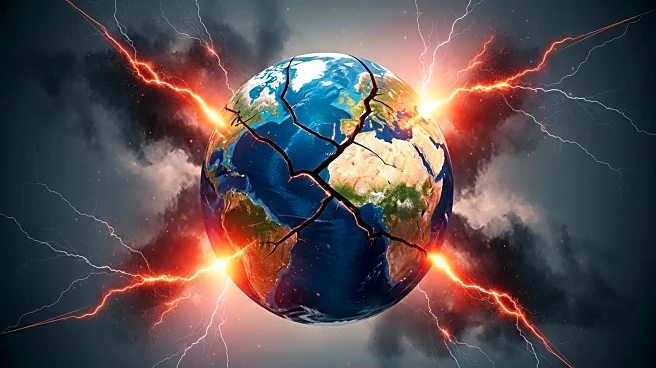What's Happening?
Massive protests have erupted across Israel in response to a proposed deal aimed at halting the ongoing conflict for 60 days and releasing some hostages. The deal comes as Israel plans its military occupation of Gaza City, sparking widespread public demonstrations. Protesters are calling for the government to agree to the deal, which they believe could lead to a temporary cessation of hostilities and a potential resolution to the crisis.
Why It's Important?
The protests reflect deep divisions within Israeli society regarding the government's approach to the conflict and its military strategies. The proposed deal represents a significant diplomatic effort to address the humanitarian crisis and reduce violence. Public pressure could influence government decisions and impact the course of negotiations. The situation underscores the complexities of achieving peace in the region and the challenges faced by leaders in balancing security concerns with humanitarian needs.
What's Next?
The Israeli government may face increased pressure to consider the proposed deal and engage in diplomatic negotiations. The protests could lead to further political discourse and potential shifts in policy. International stakeholders may also become involved, seeking to mediate and support efforts to resolve the conflict. The outcome of these developments could have lasting implications for regional stability and peace efforts.








